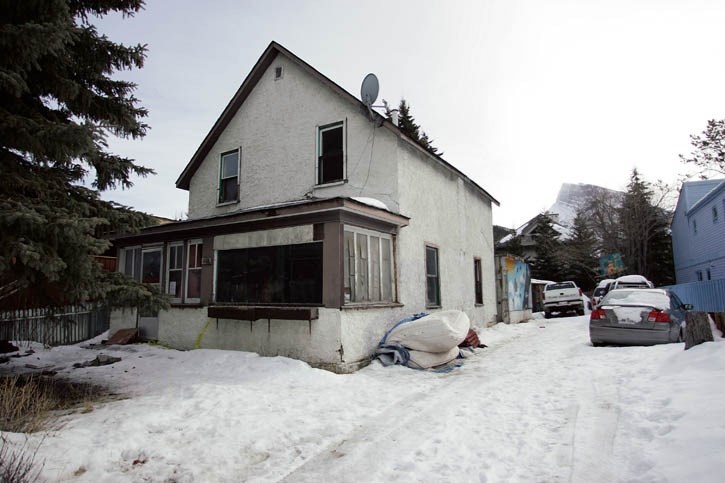Developers have a chance to get a break on parking requirements as part of the Town of Banff’s attempt to encourage construction of rental apartment buildings to ease the tourist town’s housing crunch.
On Monday (March 10), Banff politicians voted 6-1 to sign off on policy C122, which is based on research suggesting rental apartments typically have lower vehicle ownership and don’t need as many spaces.
The policy allows for a reduction in the amount of off-street parking stalls for apartments, based on a number of specific factors, like proximity to public transit, distance to the downtown core, unit size, provision of covered bicycle storage and car-sharing programs.
There has been vocal opposition to the policy, with many residents fearing such high-density apartments with fewer parking stalls will change the character and charm of their neighbourhoods and lead to worsening parking problems.
Councillor Corrie DiManno said she respects the concerns of residents, but she said the policy was a risk worth taking because she believes this will provide incentive for private developers to build purpose-built rental housing.
“I think of friends – and those who I don’t know – who struggle to find a place to live and often, when they do, it’s overpriced and unsuitable,” she said. “This summer I was shocked to find out that a friend had repurposed a small hall closet into a bedroom to live in.”
The new policy comes hot of the heels of an Alberta Health Services’ investigation that led to a house on the 300 block of Squirrel Street being condemned. Known locally as the Hippie House, it was shut down Feb. 24 because it was considered unlivable.
AHS ordered any tenants to vacate the main house on the property on or before Feb. 25. It is unclear how many, if any, people were living in the house at the time. Closure tape has since been ripped off the door, but the closure notice remains.
Banff Bylaw Services has dealt with the property in the past, based on complaints the house is an unsightly premises with abandoned furniture and vehicles. They’ve also been called on noise complaints.
ASH spokesman Bruce Conway said an environmental public health officer completed an inspection after being contacted by Town of Banff’s bylaw services as a result of some complaints.
“The inspection found the main house to have frozen pipes, and a lack of water to some fixtures, poor weather-proofing, doors and windows damaged and unsecureable, as well as multiple safety concerns,” said Conway.
“Although the heat had been restored at the time of inspection, the inside temperature was still 12 C.”
Conway said the house cannot be rented out again until owners have complied with the order, all of which is listed on AHS’s website. “They would need to adhere to all of these directives before being able to operate again,” he said.
Mayor Karen Sorensen said housing is a top priority of this council.
“This situation reminds us that it is crucial to work towards suitable housing for all residents that is well managed and well maintained,” she said.
Policy C122, though addressing parking, aims to encourage developers to build rental apartments by lowering the cost. Off-street parking stalls for apartments are in the range of $20,000 to $40,000 per stall, though some estimates put a stall as high as $70,000.
Even if a developer was able to take advantage of all incentive bonuses in the policy, like distance to downtown and proximity to transit, to qualify for a parking reduction, the parking could never fall below 0.6 stalls per dwelling unit.
Many residents are against the policy, as well as oppose a new high-density apartment proposed by Caribou Properties on the 400 block of Beaver Street, which seeks a dramatic reduction in the number of required parking spaces.
A group of 15 residents have also signed a letter, questioning whether the planning department followed due process and questioning the municipality’s November survey of vehicles at apartment buildings.
While most town councillors see policy C122 as a way to get better accommodation in town for entry-level staff, Councillor Ted Christensen was the lone councillor to vote against this because he said there are also other issues to consider.
Christensen said developers don’t need incentives to build housing in Banff, that reducing parking requirements for high density projects will change Banff’s neighbourhoods, and more work needs to be done on understanding the parking problem.
“We are talking about parking when we should be talking about density,” he said. “No one is arguing we have to look after staff, of course we do, but we should also be looking to mitigate impacts of these developments on that local community.”
Christensen said there are other housing options to explore.
“There are other areas in town, including the (industrial) compound, to house entry-level staff,” he said. “It’s been done in other areas, like in the U.S., where staff travel by bus for an hour. We can go to Canmore and house staff. We have a transit system.”
Coun. Stavros Karlos argued passionately in favour of the policy, pointing to a $54,000 housing study that found a shortage of available and affordable rental options is Banff’s most pressing housing need.
The housing study’s conservative estimate on the current shortfall is about 170 units and projected to a total shortfall of up to 455 units by 2022.
“We have a huge shortfall in our housing, going to a mega shortfall in the future,” Karlos said. “There has been no purpose-built rental housing for at least 15 years. It’s leading to improper conditions and not giving newcomers to Banff affordable, reasonable places to live.”
Karlos said the costs of developing and the costs of land in Banff are high, making it uneconomical to build rental apartment buildings.
“Right now, the incentives for developers to build low-cost rental is limited,” he said. “This policy is about bonusing people for smart planning choices.”




